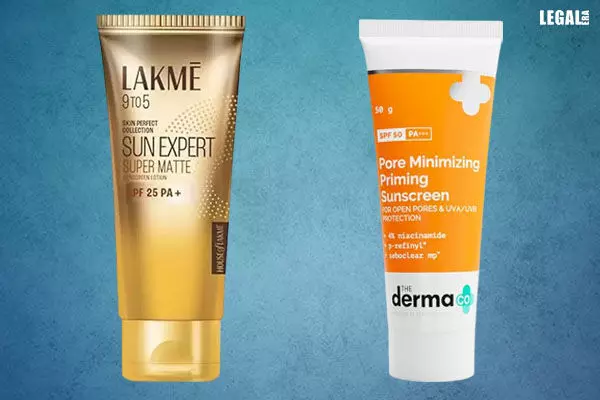- Home
- News
- Articles+
- Aerospace
- Artificial Intelligence
- Agriculture
- Alternate Dispute Resolution
- Arbitration & Mediation
- Banking and Finance
- Bankruptcy
- Book Review
- Bribery & Corruption
- Commercial Litigation
- Competition Law
- Conference Reports
- Consumer Products
- Contract
- Corporate Governance
- Corporate Law
- Covid-19
- Cryptocurrency
- Cybersecurity
- Data Protection
- Defence
- Digital Economy
- E-commerce
- Employment Law
- Energy and Natural Resources
- Entertainment and Sports Law
- Environmental Law
- Environmental, Social, and Governance
- Foreign Direct Investment
- Food and Beverage
- Gaming
- Health Care
- IBC Diaries
- In Focus
- Inclusion & Diversity
- Insurance Law
- Intellectual Property
- International Law
- IP & Tech Era
- Know the Law
- Labour Laws
- Law & Policy and Regulation
- Litigation
- Litigation Funding
- Manufacturing
- Mergers & Acquisitions
- NFTs
- Privacy
- Private Equity
- Project Finance
- Real Estate
- Risk and Compliance
- Student Corner
- Take On Board
- Tax
- Technology Media and Telecom
- Tributes
- Viewpoint
- Zoom In
- Law Firms
- In-House
- Rankings
- E-Magazine
- Legal Era TV
- Events
- Middle East
- Africa
- News
- Articles
- Aerospace
- Artificial Intelligence
- Agriculture
- Alternate Dispute Resolution
- Arbitration & Mediation
- Banking and Finance
- Bankruptcy
- Book Review
- Bribery & Corruption
- Commercial Litigation
- Competition Law
- Conference Reports
- Consumer Products
- Contract
- Corporate Governance
- Corporate Law
- Covid-19
- Cryptocurrency
- Cybersecurity
- Data Protection
- Defence
- Digital Economy
- E-commerce
- Employment Law
- Energy and Natural Resources
- Entertainment and Sports Law
- Environmental Law
- Environmental, Social, and Governance
- Foreign Direct Investment
- Food and Beverage
- Gaming
- Health Care
- IBC Diaries
- In Focus
- Inclusion & Diversity
- Insurance Law
- Intellectual Property
- International Law
- IP & Tech Era
- Know the Law
- Labour Laws
- Law & Policy and Regulation
- Litigation
- Litigation Funding
- Manufacturing
- Mergers & Acquisitions
- NFTs
- Privacy
- Private Equity
- Project Finance
- Real Estate
- Risk and Compliance
- Student Corner
- Take On Board
- Tax
- Technology Media and Telecom
- Tributes
- Viewpoint
- Zoom In
- Law Firms
- In-House
- Rankings
- E-Magazine
- Legal Era TV
- Events
- Middle East
- Africa
Lakmé vs Derma Co: Sunscreen Ad Pulled Down After Disparagement Claim — What The Courts Say About Trademark Disparagement

Lakmé vs Derma Co: Sunscreen Ad Pulled Down After Disparagement Claim — What The Courts Say About Trademark Disparagement
In the competitive world of skincare, even sunscreen can spark courtroom battles. In a recent legal development, Hindustan Unilever Ltd (HUL), the parent company of Lakmé, informed the Delhi High Court that it would remove advertisements and hoardings that were alleged to have disparaged competing skincare brand The Derma Co.
According to reports, the ads indirectly targeted The Derma Co by criticizing sunscreens that “leave a white cast,” a perceived reference to the D2C brand’s product. Though no name was mentioned, the messaging was clear enough to spark legal action.
But what exactly constitutes trademark disparagement, and how do Indian courts evaluate such claims?
What Is Trademark Disparagement?
Trademark disparagement refers to any advertising or public communication that makes a derogatory or untrue statement about another brand’s product, often leading to damage of reputation or loss of goodwill. This can be direct (naming the competitor) or indirect (making suggestive comparisons that clearly allude to the competitor).
In India, comparative advertising is legally permitted under the principles of free speech and competition — but it has boundaries. Brands are allowed to highlight the superior features of their own products, even in comparison to others, as long as they:
1. Do not make false or misleading claims,
2. Do not show the competitor’s product in a poor light,
3. Do not imply the competitor’s product is harmful, unsafe, or inferior in a disparaging way.
How Do Courts View Disparagement Claims?
Indian courts follow a consistent set of principles when examining disparagement cases, based on earlier judgments such as Reckitt & Colman v. Kiwi TTK Ltd and Pepsi Co. v. Hindustan Coca-Cola. The key legal test is whether the advertisement merely puffs up the advertiser's own product or goes a step further to unfairly degrade the competitor's product.
Here’s how the courts typically assess such cases:
- Intent and Impression: Does the ad create a false or misleading impression about the rival’s product?
- Reference to the Competitor: Is the competitor identified, directly or by implication?
- Substantiation: Are the claims backed by verifiable data?
- Manner of Presentation: Is the tone mocking, sarcastic, or suggestive of inferiority?
Even indirect references can be actionable if the average consumer can reasonably conclude that the message is targeting a particular brand. Courts are protective of trademarks not just as business identifiers, but as repositories of reputation and consumer trust.
What Happened in the Lakmé vs Derma Co Case?
In this case, The Derma Co argued that Lakmé’s sunscreen ads implied that rival products leave a white cast — a problem that The Derma Co claims its product does not have. Since the ad did not explicitly name the brand but used language and visuals strongly suggesting it, The Derma Co claimed it was a classic case of disparagement by implication.
HUL responded by agreeing to:
- Take down online ads within 24 hours
- Remove physical hoardings within 48 hours
This rapid response may have been a strategic move to avoid an injunction or further reputational fallout.
Why This Case Matters
This dispute is a high-profile example of traditional FMCG giants and D2C upstarts clashing over market share, messaging, and consumer perception.
It highlights:
- The growing assertiveness of new-age D2C brands in defending their IP and reputation
- The limits of creative liberty in advertising when it treads into legally sensitive territory
- The critical importance of regulatory and legal compliance in marketing strategy
With social media amplifying brand messaging, even suggestive comparisons can have immediate business and legal consequences.
Final Thought
Brands must walk the fine line between effective marketing and lawful communication. Trademark laws — especially around disparagement — aren’t just legal technicalities. They are fundamental to maintaining fair play and trust in the marketplace.
In a crowded skincare segment, building your own brand up is one thing. Tearing a competitor down? That’s when the courts step in.
Have you encountered ads that seemed to push the line between comparison and attack? Should courts take a stricter view of such indirect messaging? Share your thoughts.
Nagaraja is an accomplished Intellectual Property & Technology Lawyer with over 15 years of extensive experience, specializing in General Corporate, Commercial, Employment, PoSH, IP, Technology, and Data Privacy laws. His career is marked by a robust track record of ensuring the legality and strategic alignment of corporate transactions. He excels in designing and updating comprehensive legal strategies that integrate seamlessly with business objectives.
In his most recent role as a Senior Associate at (EY) Lumiere Law Partners, Bengaluru from October 2019 to October 2022, Nagaraja provided strategic counsel to corporate and individual clients across a spectrum of legal domains including corporate law, patent, copyright, trademark, intellectual property, technology laws, and data protection. He demonstrated proficiency in creating implementation and product support agreements while thriving in high-paced environments with multiple concurrent responsibilities.
Nagaraja holds a Master of Laws degree with a specialization in Business & Trade Law from Garden City University and a Bachelor of Laws from Bangalore University. He also holds a PGD in Business Administration specializing in Finance Management from Symbiosis Centre for Distance Learning. His academic pursuits are complemented by certifications in GDPR & DPO, Cyber Law, and Privacy Management from reputable institutions.
- #Lakme
- #DermaCo
- #TrademarkLaw
- #BrandDisparagement
- #DelhiHighCourt
- #D2C
- #FMCG
- #MarketingLaw
- #ComparativeAdvertising
- #ConsumerTrust
- #TrademarkAttorney
- #CorporateBranding
- #IndianIP
- #BrandEquity
- #LegalPrecedent
- #BrandCounselIndia
- #TrademarkRegistrationIndia
- #TrademarkAttorneyBangalore
- #IntellectualPropertyLawyerIndia
- #TrademarkLawyerBangalore
- #BrandProtectionIndia
- #IPLegalServicesBangalore
- #TrademarkRegistrationLawyerBangalore
- #BrandCounselBangalore
- #TrademarkExpertIndia
- #LegalAdviceTrademarkRegistration
- #TrademarkInfringementIndia
- #IPRightsProtectionIndia
- #TrademarkFilingBangalore
- #CorporateTrademarkLawyerIndia
- #BangaloreTrademarkAttorney
- #TrademarkLawIndia
- #TrademarkLitigationBangalore
- #BestTrademarkLawyerBangalore
- #TrademarkLawFirmIndia



